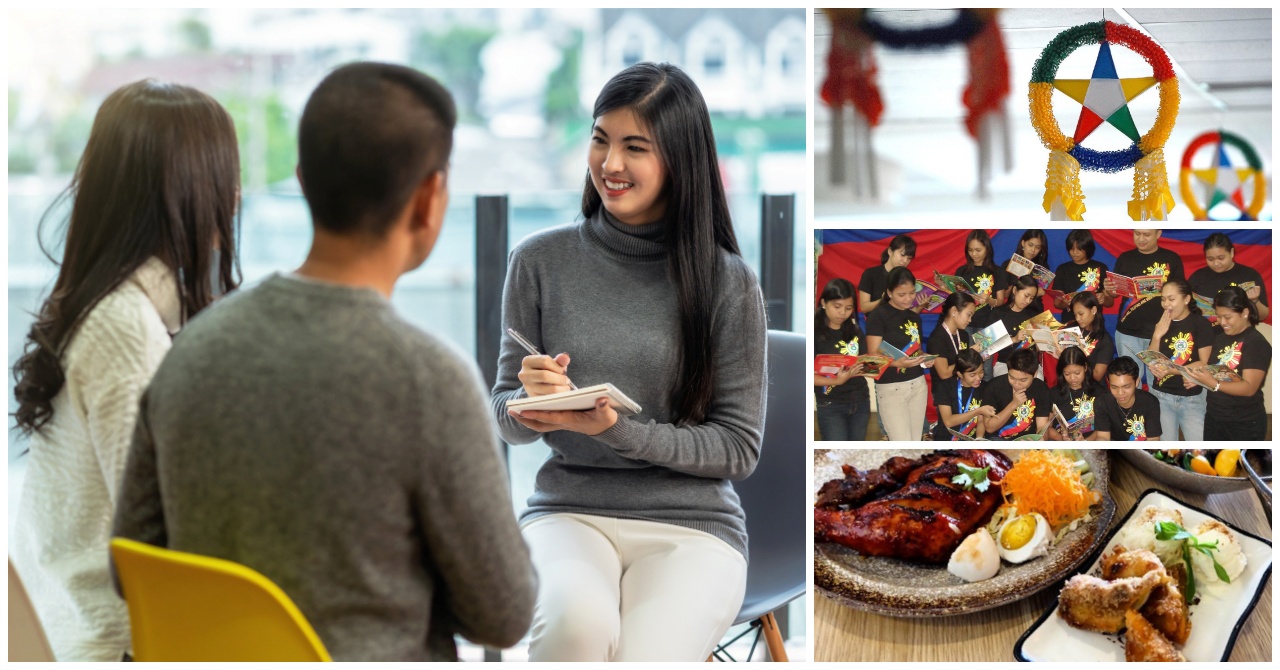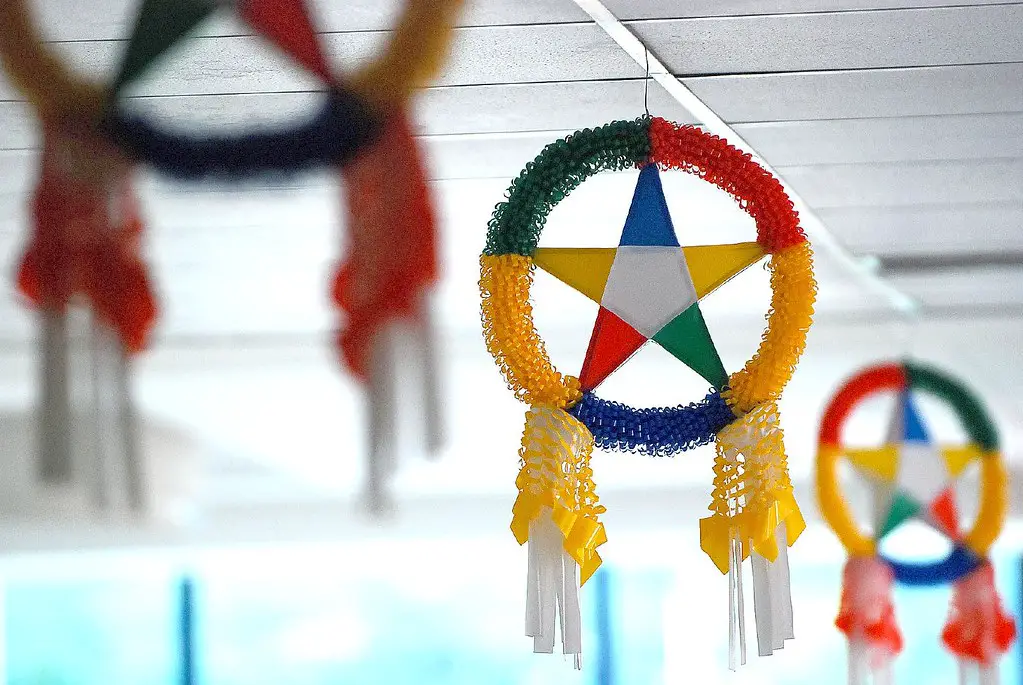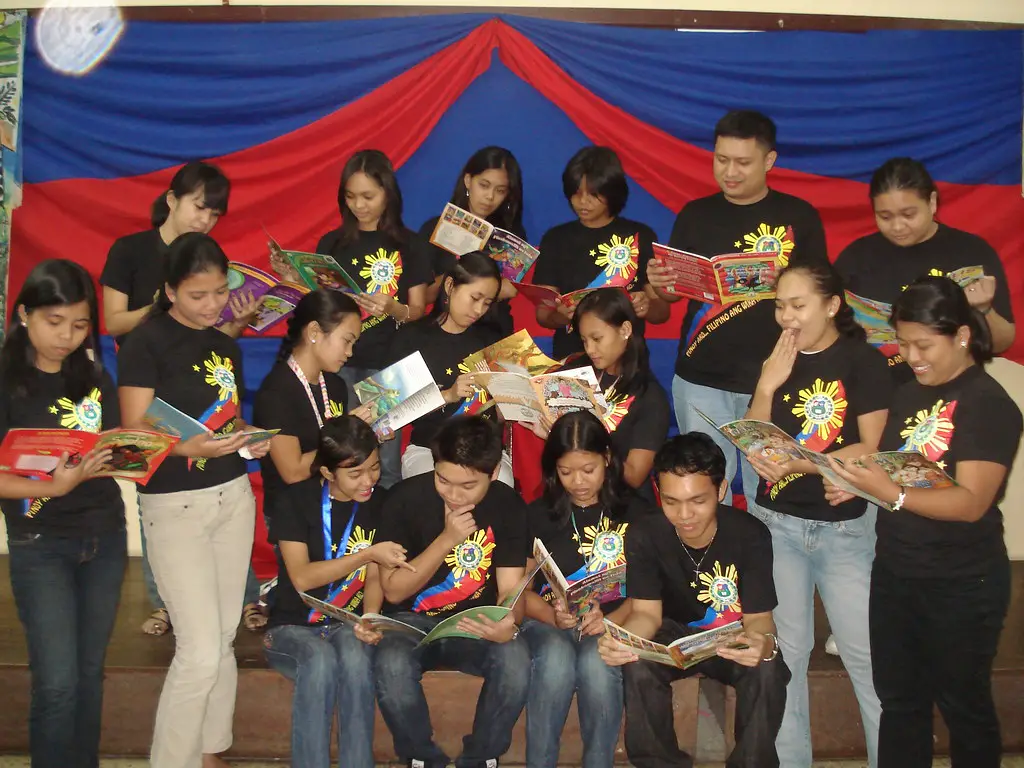Being an OFW is a journey that takes Filipinos far from the shores of their beloved homeland. While the pursuit of better opportunities and financial stability is often the driving force behind their decision to work abroad, it is crucial to remember the importance of celebrating and keeping Filipino culture alive. As an OFW, staying connected to one’s roots and actively promoting the rich traditions, values, and heritage of the Philippines becomes a responsibility and a source of pride.
In line with this, let us explore various ways in which OFWs can keep the flame of Filipino culture alive, even in foreign lands. From embracing Filipino holidays and traditions to sharing mouthwatering Filipino cuisine, let us delve into the vibrant tapestry that is Filipino culture and discover how it can thrive amidst the challenges and adventures of life as an OFW.
Contents
- Language Preservation
- Building Community Networks
- Culinary Traditions
- Celebrating Filipino Festivals and Holidays
- Engagement with Filipino Arts and Music
- Supporting Filipino Businesses and Artistry
- Educational Outreach
- Staying Connected to the Philippines
- Giving Back and Volunteering
- Cultural Events and Exhibitions
- Video: Preservation of Filipino Culture Through Language
- Frequently Asked Questions (FAQs)
- 1. Why is it important to keep Filipino culture alive as an OFW?
- 2. How can I celebrate Filipino holidays while living abroad?
- 3. What are some ways to teach my children about Filipino culture as an OFW?
- 4. How can I stay connected with the Filipino community while living abroad?
- 5. How can I support Filipino artists and artisans as an OFW?
- 6. Are there any online resources for learning about Filipino culture as an OFW?
- 7. Can I collaborate with local cultural institutions to promote Filipino culture?
- 8. How can I share Filipino values and traditions with others as an OFW?
- Summary

Language Preservation
Language is an integral part of any culture, serving as a bridge that connects generations and preserves traditions.
As an OFW, it is essential to recognize the importance of speaking Filipino languages in the diaspora and to find strategies for teaching these languages to the younger generation.
The Filipino language, known as Filipino, is the national language of the Philippines. However, the country is home to numerous regional languages and dialects, each with its own unique characteristics and cultural significance. By encouraging the use of Filipino languages, OFWs can ensure that their cultural heritage remains alive and vibrant.
- One effective strategy for teaching languages to the younger generation is through immersion.
- Creating an environment where Filipino languages are spoken regularly at home can help children develop fluency and familiarity.
- This can be achieved by speaking Filipino languages during everyday conversations, reading Filipino books, and watching Filipino movies or TV shows together as a family.
Additionally, OFWs can seek out language classes or cultural programs in their host country that offer Filipino language lessons.
These classes can provide structured learning opportunities and enable children to interact with peers who share the same cultural background.
Technology can also play a significant role in language preservation.
- There are numerous language-learning apps and online resources available that cater specifically to Filipino languages.
- These tools can make language learning fun and interactive, allowing children to practice their language skills in an engaging manner.
Furthermore, OFWs can organize language exchange programs within their communities.
- This involves partnering with fellow Filipinos who are fluent in different Filipino languages and creating opportunities for language practice and cultural exchange.
- These programs can be conducted through language clubs, community events, or even online platforms.
Building Community Networks
One of the most effective ways to keep Filipino culture alive as an OFW is by joining or forming Filipino community groups and centers in your area.
- These organizations serve as a hub for Filipinos to come together, connect, and celebrate their shared heritage.
- By actively participating in these groups, you can engage in cultural activities, events, and initiatives that promote Filipino traditions and values.
- These community groups often organize cultural festivals, dance performances, and language classes, providing a platform for OFWs to showcase their talents and immerse themselves in Filipino arts and culture.
- They also serve as a support network, offering a sense of belonging and camaraderie among fellow Filipinos who understand the challenges and experiences of living abroad.
In many Filipino communities overseas, churches and cultural organizations play a significant role in preserving and promoting Filipino culture.
- Churches often hold special masses and religious celebrations that incorporate Filipino customs and traditions.
- These gatherings provide an opportunity for OFWs to come together, pray, and celebrate their faith while keeping their cultural identity alive.
Cultural organizations, such as dance troupes, music groups, and theater companies, also contribute to the preservation of Filipino culture.
- They offer training and performance opportunities for OFWs interested in traditional Filipino arts.
- These organizations not only provide a platform for showcasing Filipino talent but also serve as a bridge between different cultures, fostering cross-cultural understanding and appreciation.
By actively participating in church activities and engaging with cultural organizations, OFWs can contribute to the preservation and promotion of Filipino culture. These institutions serve as pillars of the community, nurturing a sense of pride in Filipino heritage and instilling a love for the traditions that make the Filipino identity unique.
Culinary Traditions

One of the most delicious ways to keep Filipino culture alive as an OFW is through the celebration of culinary traditions. Filipino cuisine is renowned for its bold flavors, unique combinations, and diverse regional specialties. Here are a couple of ideas to immerse yourself and others in the wonders of Filipino food:
- Cooking and sharing Filipino dishes: Take the time to learn and master traditional Filipino recipes. Whether it’s adobo, sinigang, kare-kare, or pancit, the possibilities are endless. Invite friends, colleagues, and neighbors to taste the flavors of the Philippines by hosting a Filipino-themed dinner or simply sharing your culinary creations with them. The aroma and taste of Filipino dishes can evoke a sense of nostalgia and create connections across cultures.
- Organizing Filipino food festivals or potlucks in the OFW community: Gather fellow OFWs and create a vibrant celebration of Filipino cuisine with a food festival or potluck. Encourage everyone to bring their favorite Filipino dish, allowing for a diverse spread of regional specialties. This not only provides an opportunity to showcase the rich culinary heritage of the Philippines but also fosters a sense of community and camaraderie among OFWs who share a common love for Filipino food.
By cooking and sharing Filipino dishes and organizing food-related events, you not only satisfy the taste buds but also promote cultural exchange and appreciation. Through the universal language of food, you can introduce others to the vibrant flavors and traditions of the Philippines, fostering a deeper understanding and appreciation for Filipino culture.
Remember, the key is to make these culinary experiences inclusive and inviting to people from different backgrounds. Embrace the opportunity to share stories behind the dishes, explain the unique ingredients, and encourage conversations about the cultural significance of food in Filipino traditions.
Celebrating Filipino Festivals and Holidays

One of the most vibrant ways to keep Filipino culture alive as an OFW is by actively participating in and organizing events for Filipino festivals and holidays.
These occasions provide a wonderful opportunity to showcase the rich traditions and customs that make up the Filipino identity.
Here are a few key festivals and holidays that you can embrace and celebrate, even while being away from the Philippines:
- Independence Day: On June 12th, Filipinos around the world commemorate the country’s independence from Spanish colonial rule. Join local Filipino community organizations or cultural groups in your area to participate in parades, flag-raising ceremonies, and cultural performances. These events not only foster a sense of unity among Filipinos abroad but also raise awareness about the significance of Philippine independence.
- Pasko (Christmas): Christmas is a cherished holiday in the Philippines, known for its festive spirit and unique traditions. As an OFW, you can recreate the joyful atmosphere of a Filipino Christmas by organizing gatherings with fellow Filipinos, complete with traditional Filipino dishes, Christmas carols, and the iconic parol (Christmas lantern). Share the spirit of giving by organizing gift exchanges or participating in charity drives that benefit Filipino communities back home.
- Ati-Atihan: Ati-Atihan is a lively festival held in January in Kalibo, Aklan, to honor the Santo Niño (Child Jesus). As an OFW, you can organize your own mini Ati-Atihan celebration by inviting friends and fellow Filipinos to dress in vibrant costumes, paint their faces, and dance to the rhythmic beat of traditional Ati-Atihan music. This festive event allows you to showcase the unique cultural heritage of the Philippines and create a sense of camaraderie within your community abroad.
Remember, the key to keeping Filipino culture alive during festivals and holidays is active participation and organization. By taking the initiative to celebrate these occasions, you not only preserve your own cultural heritage but also create opportunities for cultural exchange and appreciation among people from different backgrounds.
Engagement with Filipino Arts and Music

To truly immerse oneself in Filipino culture as an OFW, engagement with Filipino arts and music is a wonderful avenue. Here are some ways you can actively participate in and promote these vibrant aspects of Filipino heritage:
- Practicing traditional dances and music: Filipino traditional dances, such as the Tinikling, Singkil, and Pandanggo sa Ilaw, are not only visually captivating but also deeply rooted in Filipino history and folklore. Seek out dance groups or classes in your area that teach these traditional dances. By learning and practicing these dances, you not only keep the traditions alive but also have the opportunity to showcase them at cultural events or gatherings.
- Organizing cultural showcases and performances: Take the initiative to organize cultural showcases and performances that highlight Filipino arts and music. Collaborate with fellow OFWs or members of the Filipino community to put together a vibrant display of talent. This can include traditional dances, musical performances, and even theatrical productions that tell stories from Filipino folklore or history. These events provide a platform for the community to come together, celebrate Filipino culture, and share it with others.
By actively engaging in Filipino arts and music, you contribute to the preservation and promotion of these valuable cultural treasures.
It also serves as a reminder of the beauty and diversity of Filipino heritage, fostering a sense of pride and connection among OFWs and the wider community.
Remember, the essence of Filipino arts and music lies not only in the performances themselves but also in the stories, emotions, and values they convey.
Through your participation and support, you can help ensure that these artistic expressions continue to thrive and inspire generations to come.
Supporting Filipino Businesses and Artistry
One impactful way to keep Filipino culture alive as an OFW is by supporting Filipino-owned businesses and promoting Filipino art and products in the host country. By doing so, you not only contribute to the growth and success of Filipino entrepreneurs and artists but also showcase the diversity and talent of the Filipino community to the wider world.
Patronizing Filipino-owned businesses:
- Seek out and support Filipino-owned businesses in your host country.
- Whether it’s a Filipino restaurant, grocery store, or clothing boutique, choosing to spend your money at these establishments helps create a sense of community and provides economic support to fellow Filipinos.
- Additionally, by experiencing authentic Filipino products and services, you can keep the connection to your culture alive and share it with others.
Promoting Filipino art and products:
- Take the opportunity to promote Filipino art and products in your host country.
- Attend art exhibitions, concerts, or performances featuring Filipino artists. Purchase artwork, crafts, or products made by Filipino artisans and showcase them in your home or office.
- By doing so, you not only support local talent but also introduce others to the beauty and creativity of Filipino artistry.
Collaborating with Filipino artists and entrepreneurs:
- If you have a platform or network in your host country, consider collaborating with Filipino artists, musicians, or entrepreneurs to showcase their work or products.
- This could involve organizing cultural events, exhibitions, or pop-up shops that highlight Filipino talent and craftsmanship.
- By providing a platform for Filipino artists to showcase their skills, you actively contribute to the preservation and promotion of Filipino culture.
Utilizing social media and online platforms:
- In today’s digital age, social media and online platforms offer powerful tools for promoting Filipino businesses and artistry.
- Use your social media presence to share and promote Filipino-owned businesses, artists, and their work.
- Write reviews, recommend their services, and share their stories.
- By amplifying their voices and creations, you help raise awareness and support for Filipino culture.
Educational Outreach
One of the most effective ways for OFWs to keep Filipino culture alive is through educational outreach.
By teaching others about Filipino culture and history, OFWs can foster cross-cultural understanding and appreciation. Here are a couple of avenues for educational outreach:
- Teaching others about Filipino culture and history: OFWs can actively engage in sharing their knowledge and experiences with people from different backgrounds. This can be done through informal conversations, presentations, or even by organizing workshops or seminars. By showcasing the richness of Filipino culture, traditions, and history, OFWs can help dispel misconceptions and promote a deeper understanding of the Philippines.
- Cultural exchange programs and multicultural events: Participating in cultural exchange programs and multicultural events provides a platform for OFWs to showcase Filipino culture and engage with people from diverse backgrounds. These programs and events often include performances, exhibitions, and interactive activities that allow OFWs to share their traditions, music, dance, arts, and crafts with others. It is an opportunity to foster cultural appreciation, build connections, and create lasting memories.
By actively participating in educational outreach initiatives, OFWs can play a vital role in preserving and promoting Filipino culture. Their efforts not only help educate others about the beauty and diversity of the Philippines but also contribute to creating a more inclusive and multicultural society.
Staying Connected to the Philippines
To keep the Filipino culture alive as an OFW, it is essential to stay connected to the happenings in the Philippines. Here are a couple of ways you can do that:
- Keeping up with Filipino news and current events: Stay informed about the latest news and current events in the Philippines. Subscribe to online news platforms or follow Filipino news outlets on social media. This will help you stay updated on important developments, cultural happenings, and social issues back home.
- Engaging in social and political discussions relevant to the Philippines: Participate in discussions and conversations about social and political issues that affect the Philippines. Join online forums or social media groups where Filipinos discuss topics such as governance, human rights, and cultural preservation. Engaging in these discussions not only keeps you connected but also allows you to contribute to the ongoing dialogue about the future of the country.
By staying informed and actively participating in discussions, you can maintain a strong connection to the Philippines and contribute to the preservation and advancement of Filipino culture, values, and traditions.
Remember, it’s important to approach these discussions with an open mind and respect for different perspectives. Engage in constructive dialogue that promotes understanding and unity among Filipinos, both at home and abroad.
Giving Back and Volunteering
One of the most meaningful ways to keep Filipino culture alive as an OFW is by giving back to the Philippines and actively participating in volunteer work. Here are a couple of suggestions:
- Organizing Charity Events for the Philippines:
Use your skills, resources, and connections to organize charity events that benefit the less fortunate in the Philippines. Whether it’s a fundraising concert, a donation drive, or a community outreach program, these events can make a significant impact on the lives of those in need. Collaborate with fellow Filipinos in your host country or reach out to local organizations that support causes in the Philippines. By coming together and working towards a common goal, you can make a difference while promoting Filipino culture and values. - Participation in Development Projects for Filipino Communities:
Consider participating in development projects that aim to uplift Filipino communities. This could involve volunteering your time and expertise in areas such as education, healthcare, infrastructure, or environmental conservation. Many organizations and initiatives focus on improving the lives of Filipinos and developing sustainable solutions for the challenges they face. By actively engaging in these projects, you not only contribute to the betterment of Filipino communities but also showcase the resilience and compassion that are integral to Filipino culture.
Remember, giving back and volunteering are not only acts of kindness but also opportunities to showcase the best of Filipino culture to the world. Your efforts can inspire others and create a ripple effect of positive change.
Cultural Events and Exhibitions
- Attending and organizing exhibitions on Filipino heritage provides a wonderful opportunity for OFWs to showcase and celebrate the richness of Filipino culture. By participating in these events, you not only connect with fellow Filipinos but also introduce the beauty and diversity of Filipino traditions to people from different backgrounds.
- Look for local cultural institutions or community centers that host exhibitions or cultural events related to the Philippines. Attend these events to immerse yourself in the vibrant Filipino arts, crafts, music, and dance. It’s a chance to appreciate the talent of Filipino artists and artisans and gain a deeper understanding of your own cultural heritage.
- Additionally, consider collaborating with local cultural institutions to organize exhibitions or cultural showcases that highlight Filipino heritage. This can be done in partnership with Filipino community organizations or by reaching out to local galleries or museums that may be interested in featuring Filipino art, history, or traditions. By actively participating in the planning and organization of these events, you contribute to the preservation and promotion of Filipino culture in your host country.
Remember, the power of cultural events and exhibitions lies in their ability to educate, inspire, and unite people through the celebration of heritage. By actively participating and collaborating, you contribute to the preservation and promotion of Filipino culture, ensuring that it thrives and continues to be cherished by future generations.
Video: Preservation of Filipino Culture Through Language
In this insightful video, Professor Nenita Domingo of UCLA and Jilly Canizares, Executive Director of FilAm ARTS, discuss the significance of preserving Filipino culture through language.
They emphasize the importance of learning and teaching Tagalog and other Filipino languages as a means to safeguard traditions, values, and identity.
The discussion explores how language fosters a sense of community and pride among Filipinos, especially those living abroad.
Frequently Asked Questions (FAQs)
1. Why is it important to keep Filipino culture alive as an OFW?
Preserving Filipino culture as an OFW is important because it helps maintain a sense of identity, connection, and pride in one’s heritage. It also ensures that future generations have the opportunity to learn and appreciate their Filipino roots.
2. How can I celebrate Filipino holidays while living abroad?
You can celebrate Filipino holidays by organizing gatherings with fellow Filipinos, preparing traditional Filipino dishes, decorating your home with Filipino symbols, and participating in cultural events organized by Filipino communities in your area.
3. What are some ways to teach my children about Filipino culture as an OFW?
You can teach your children about Filipino culture by sharing stories, teaching them Filipino language, exposing them to Filipino music and movies, and encouraging their participation in Filipino cultural activities or organizations.
4. How can I stay connected with the Filipino community while living abroad?
You can stay connected with the Filipino community by joining Filipino organizations or groups in your area, attending Filipino cultural events, participating in community activities, and utilizing social media platforms dedicated to Filipinos abroad.
5. How can I support Filipino artists and artisans as an OFW?
You can support Filipino artists and artisans by purchasing their works, attending their performances or exhibitions, sharing their creations on social media, and promoting their talent to your local community.
6. Are there any online resources for learning about Filipino culture as an OFW?
Yes, there are several online resources available. You can join online Filipino communities, follow Filipino cultural blogs or websites, watch Filipino documentaries or vlogs, and participate in virtual cultural events or workshops.
7. Can I collaborate with local cultural institutions to promote Filipino culture?
Yes, you can collaborate with local cultural institutions by proposing exhibitions, performances, or workshops that showcase Filipino culture. Reach out to museums, galleries, or community centers in your area to explore partnership opportunities.
You can share Filipino values and traditions with others by organizing cultural exchange events, giving presentations about Filipino customs and practices, and engaging in conversations that promote cross-cultural understanding and appreciation.
Summary
In conclusion, as an OFW, you have the power to preserve and promote Filipino culture wherever you are. By actively engaging in cultural activities, celebrating Filipino traditions, teaching your children about their heritage, staying connected with the Filipino community, supporting Filipino artists, and sharing Filipino values with others, you contribute to the preservation and celebration of Filipino culture.
Remember, your efforts not only keep the flame of Filipino culture alive but also foster a sense of pride, identity, and belonging among Filipinos living abroad. Embracing your roots and sharing the beauty of Filipino culture with others is a testament to the resilience and richness of the Filipino spirit.
READ NEXT: Why Many ‘Kabayans’ Choose to Work and Live in Dubai